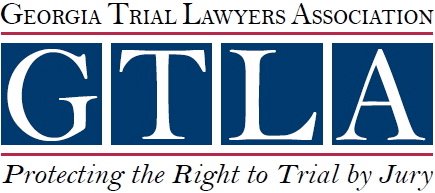In Georgia, construction sites are important yet complex places where accidents can happen unexpectedly, leading to serious injuries for workers, contractors, and even bystanders. When these accidents occur, the injured individuals may need financial help for medical bills, lost income, and other expenses. This is where the legal process, specifically a trial involving a jury, can be crucial in deciding how much an injured person may receive in damages. A jury has the important job of determining the compensation based on the facts of the case, the extent of the injuries, and the impact of the accident on the injured person’s life. Understanding the jury’s role in deciding damages in Georgia construction accident cases can shed light on how decisions are made in the courtroom and what injured parties can expect when seeking justice and fair compensation. At, Princenthal, May & Wilson, LLC , we are here to guide you through the legal process and help you navigate the complexities of your case.




What Are Damages in Construction Accident Cases?
Damages are a form of financial compensation awarded to someone who has been hurt due to another person’s or company’s negligence or misconduct. In construction accident cases, damages often cover a range of costs and losses that arise because of the accident. These can include medical bills, physical therapy expenses, lost wages, and sometimes even pain and suffering. In Georgia, the legal system aims to make the injured person “whole” again, meaning that damages are supposed to help the person return to the position they were in before the accident occurred, as much as possible. This does not mean that money can replace a lost ability or reduce the pain, but it provides a way to help the injured person manage the financial burden caused by the accident.
When a construction accident case goes to trial, the jury’s role is to examine the evidence, listen to testimonies, and decide how much in damages should be awarded. The amount awarded will depend on the seriousness of the injuries, the financial losses, and other factors that affect the person’s life due to the accident. Georgia law provides guidance on how juries should look at damages, but each case is unique, and the jury’s decision is often based on the specific details presented during the trial.
Types of Damages Juries Consider in Construction Accident Cases
In Georgia, damages are often divided into two main categories: economic and non-economic damages. Economic damages are the actual financial losses that can be calculated with some certainty, such as medical expenses, rehabilitation costs, and lost income from being unable to work. These are more straightforward because they are based on bills, receipts, and records of income. Non-economic damages, on the other hand, are harder to calculate and include aspects like pain and suffering, mental distress, and loss of enjoyment of life. Juries must consider both types of damages carefully when determining the total amount to award.
In some cases, Georgia law also allows for punitive damages, which are different from economic and non-economic damages. Punitive damages are meant to punish the wrongdoer if their actions were especially reckless or harmful. However, these are not always awarded, and the decision to grant punitive damages depends on whether the jury believes the defendant acted in a way that was extremely careless or intentional. The goal of punitive damages is not just to compensate the injured person but also to deter others from engaging in similar dangerous behavior on construction sites.
How the Jury Examines Evidence in Construction Accident Cases
During a construction accident trial, the jury is presented with a variety of evidence to help them understand what happened and who might be at fault. Evidence can include accident reports, medical records, photographs of the accident site, and witness testimonies. Witnesses may include coworkers, supervisors, or others who were present during the accident. In Georgia, it is common for both sides of the case to present their version of events, and the jury must weigh this evidence to determine the truth.
The jury has the challenging job of analyzing this evidence and deciding how it fits with the legal claims made by the injured party. They must consider whether the evidence supports the claim that the defendant was negligent and that this negligence directly led to the injuries suffered. This is an important step because, without proving fault, there can be no damages awarded. Once fault is established, the jury can move on to deciding how much compensation is fair based on the injuries and losses presented.
Factors the Jury Considers When Deciding on Damages
When the jury decides on damages in construction accident cases, they look at several key factors. One of the primary considerations is the severity of the injuries. More serious injuries typically lead to higher damages because they involve more medical care, longer recovery times, and often a greater impact on the person’s ability to work and live as they did before. For instance, an injury that leaves a person permanently disabled or unable to return to work would likely lead to a higher award than a minor injury that heals over time.
The jury also examines the costs of medical care, including hospital stays, surgeries, physical therapy, and any ongoing treatment needed. Lost wages and potential future income losses are other important factors. If the injured person is unable to work for a long time or cannot return to their previous job, the jury may consider these lost earnings as part of the damages. In addition to these financial losses, juries also try to put a value on non-economic damages such as pain and suffering. These damages are less tangible but are still important because they address the emotional and physical pain that the injured person endures due to the accident.
Understanding Pain and Suffering Damages
Pain and suffering are a significant part of many construction accident cases because they recognize the hardship that injuries bring. Pain and suffering damages are meant to compensate for the physical pain, discomfort, and emotional stress that the injured person experiences. In Georgia, juries are given some guidance on how to consider pain and suffering, but there is no fixed formula. Instead, juries must use their judgment to decide what is fair based on the testimony and evidence presented during the trial. This includes listening to how the injury has affected the person’s day-to-day life, relationships, and ability to enjoy activities they once loved.
Non-economic damages, like pain and suffering, can vary widely from case to case. For instance, an injury that causes lifelong pain and limits a person’s ability to move freely may lead to higher pain and suffering damages compared to an injury that heals in a few months. The jury considers the individual’s unique experience with the injury, including any testimony from family members or friends who can describe the impact of the accident on the person’s life.
Challenges Juries Face in Determining Fair Compensation
Determining fair compensation in construction accident cases is no easy task, and juries face several challenges in this process. One of the biggest challenges is placing a monetary value on things that do not have a clear price, such as pain, emotional distress, or a decreased quality of life. Unlike medical bills or lost wages, these damages cannot be added up from receipts, so the jury must rely on their understanding of what is fair and reasonable.
Another challenge is the potential for bias or sympathy. Juries are made up of people from various backgrounds, and they may feel sympathy for the injured person, especially if the injuries are severe or if the defendant appears particularly careless. At the same time, juries are instructed to base their decision on the evidence and the law, rather than personal feelings. Judges often remind juries of this responsibility to ensure that the damages awarded are fair and consistent with Georgia’s legal standards.
How Legal Representation Can Impact Jury Decisions
Having strong legal representation can play a vital role in construction accident cases because attorneys understand how to present evidence and arguments that can influence the jury’s decision on damages. Skilled lawyers know how to highlight the most important aspects of the case, such as the extent of the injuries and the long-term impact on the injured person’s life. They can also help to bring in medical specialists, accident reconstructionists, and other specialists who can provide clear, persuasive testimony to support the claim for damages.
Attorneys also ensure that the injured person’s rights are protected throughout the trial, which can be crucial when going up against large construction companies or insurance companies that may try to minimize their liability. By having an attorney who understands Georgia law and the specific details of construction accident cases, injured parties are more likely to receive fair treatment and a damages award that truly reflects their losses and suffering.
Hiring a Personal Injury Attorney How Long Will a Personal Injury Case Take?Related Videos
The Importance of a Fair Jury Decision in Construction Accident Cases
In Georgia, the role of the jury in deciding damages in construction accident cases is essential because it gives everyday people the power to ensure justice for those who have been harmed due to negligence on construction sites. Juries are asked to bring their sense of fairness, judgment, and common sense to each case, carefully considering all evidence to reach a decision that can provide meaningful relief to the injured person. This system also holds companies and individuals accountable for creating safe working conditions, sending a message that negligence has consequences.
If you or someone you know has been injured in a construction accident, the journey to securing fair compensation can be complicated and challenging. At Princenthal, May & Wilson, LLC, our team is committed to helping victims navigate their cases with knowledge, compassion, and dedication. We understand the hardships caused by serious injuries and are here to ensure that you have a strong advocate on your side. Contact us today to discuss your case and learn how we can support you in your pursuit of justice and recovery.





